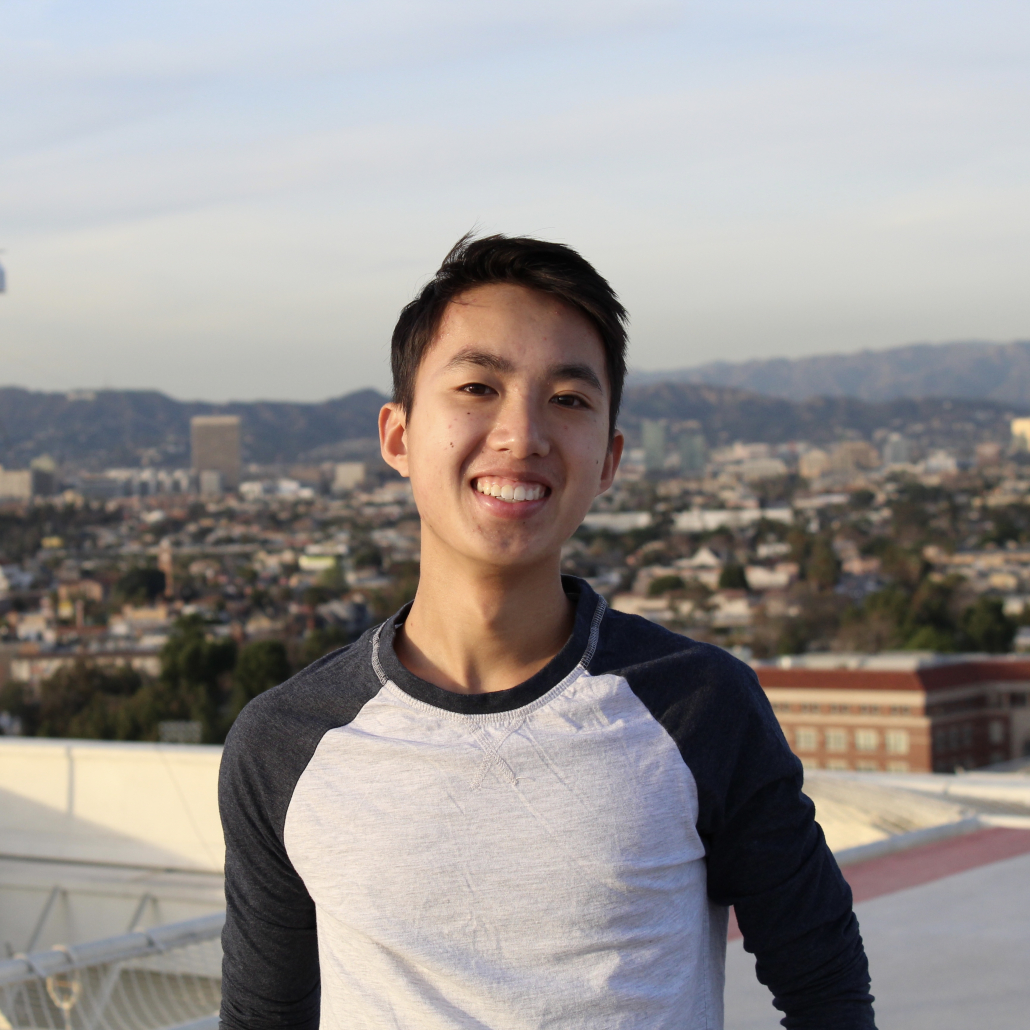Student named Goldwater Scholar for disease research

Originally from Honolulu, Hawaii, Bryson Choy enjoyed history and economics in high school, but his interests shifted to drug discovery and quantitative biology when he enrolled at USC three years ago. After pursuing research during his freshman year, Choy was one of two USC students to receive the Barry Goldwater Scholarship in March. Out of 1,200 applicants who received nominations from their school, 410 students received the $7,500 award for their works.
Choy, a rising senior studying quantitative biology and pursuing a progressive degree in quantitative and computational biology, had family members who had a history of chronic diseases. He wanted to understand how different treatments worked and was interested in learning how research could better address how diseases are treated with different therapies.
“[The award] is really a manifestation of the work that you did in your undergraduate research,” Choy said. “It’s a good stepping stone for future research fellowships that you might apply to for graduate school.”
Beginning freshman year, Choy talked to his professor, Remo Rohs, professor of quantitative and computational biology, chemistry, physics, astronomy and computer science, about his interests in computational tools to better understand disease and advance the understanding of diseases. Rohs directed Choy to various labs, including the Katritch Lab, where he would begin research during his second semester.
“That was my very first experience [performing research], I had no previous exposure to research, but that’s when I really began to get engaged in different projects,” Choy said. “My interest in research began to build … but the prospect of discovering new things, of making new discoveries and being able to advance your knowledge of, for example, a specific disease or a specific protein and how it works, was really enticing.”
Choy has continued working at the Katritch Lab and is currently writing a manuscript based on his discoveries, after which he will continue working on another project related to the discovery of another selective small molecule. While first beginning at the Katritch Lab, Choy was mentored by Arman Sadybekov, took on a few pilot projects and started to work on an independent project, which included modeling and analyzing the functional role of sodium ions in receptors and how the ion impacts activation and various functions.
Vsevolod Katritch, associate professor of quantitative and computational biology and chemistry, said that it was unusual for a freshman to be interested in his lab. However, Choy’s interests and enrollment in the second cohort of the quantitative biology major, which was created in 2017, matched what they were doing in his lab, so Katritch decided to make an exception to take Choy into his lab.
“I never regretted about [taking] him because he actually is a fast learner, and he quickly learned the ropes,” Katritch said.
In addition to working with Katritch, Choy also began research with William Padula, assistant professor of pharmaceutical and health economics in the School of Pharmacy. After onboarding onto Padula’s research team, Choy completed tasks that required data analysis, computer programming, systematic literature review and identified important data points to build the lab’s research.
Padula said that it takes a certain type of person to dedicate themselves to such research initiatives, as it takes a lot of work and time before one can get their work published in a journal.
“Bryson showed me that he was very patient, [was thinking] analytically and was learning the right methodology to contribute to the type of work that we were doing in my lab, so I could tell right away that he was a good fit,” Padula said.
As Choy continued his research, he heard about the Goldwater Scholarship — an award for students interested in doing STEM field research as a future career — from another student from Hawaii who had previously received the scholarship. In his scholarship application, Choy wrote about his interest in drug discovery and discussed his contributions to the Katritch Lab regarding the role of sodium in the activation of GPCRs, or receptors that allow molecules to bind to it, and how this can better inform future drug design approaches.
“His accomplishments and what he’s doing [is] a challenging problem, and how he approached it is very competitive for the highest level.” Katritch said. “I was not surprised that he was chosen.”
Padula called Choy an “up and coming star.” Choy seemed to be very altruistic, with a desire to do research to help people and to improve social services, Padula said.
“He wants to be a researcher in the field of social services, whether that’s healthcare and public health or whether that’s somewhere else is really up to him at this point, but … he has the right training and quantitative methods and this blend of computer science and programming to be able to make it a reality,” Padula said.
This summer, Choy is conducting research under Mitch Guttman, a professor in the Division of Biology and Biological Engineering at Caltech. Following the completion of his progressive degree program next year, Choy hopes to apply to doctorate programs in computational biology. He said that being a Goldwater Scholar will not only help him pay for tuition, but connect him to a valuable network.
“I think the opportunity to connect to others, like Goldwater Scholars, and being able to talk and connect to other students who are also interested in the same research as you, or just research in general, gives you a community of students that are also interested in going to graduate school pursuing research as a career,” Choy said. “I think that in itself is really valuable.”
Correction: A previous version of this article misstated Remo Rohs as a professor of quantitative and computational biology, chemistry, physics and anatomy, instead of a professor of quantitative and computational biology, chemistry, physics and astronomy. It also didn’t include his position as a professor of computer science. The Daily Trojan regrets this error.

